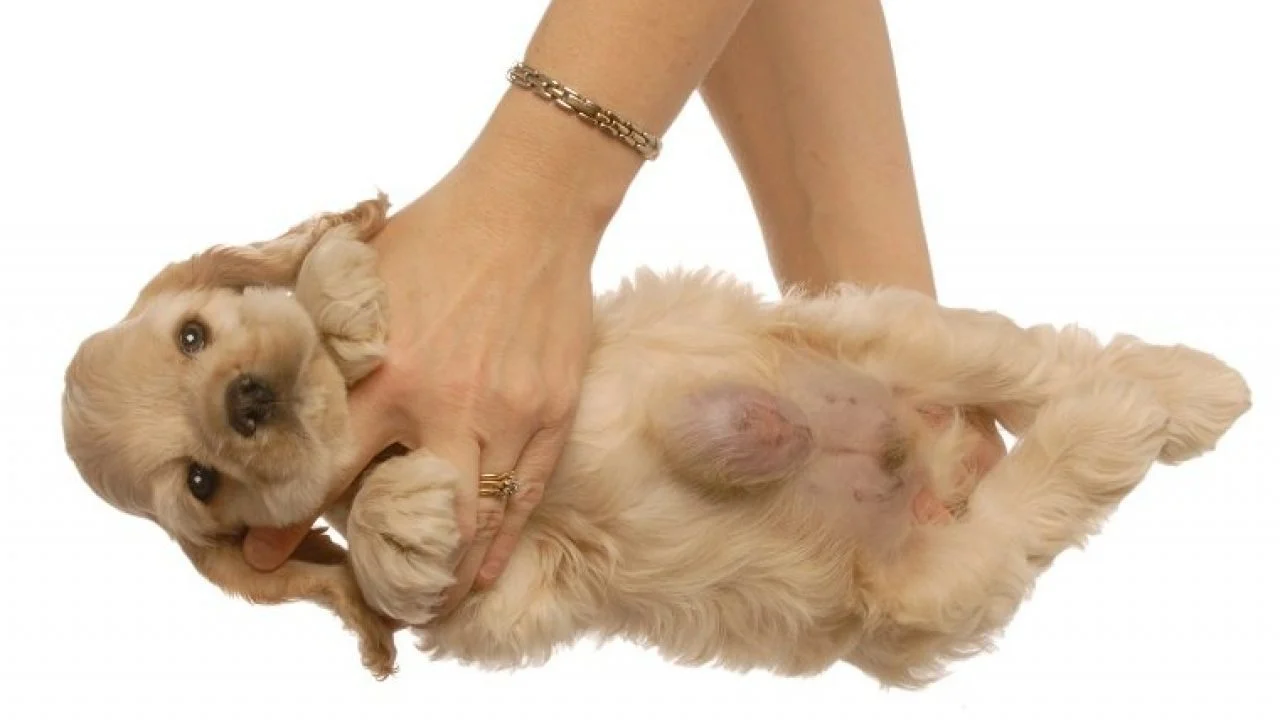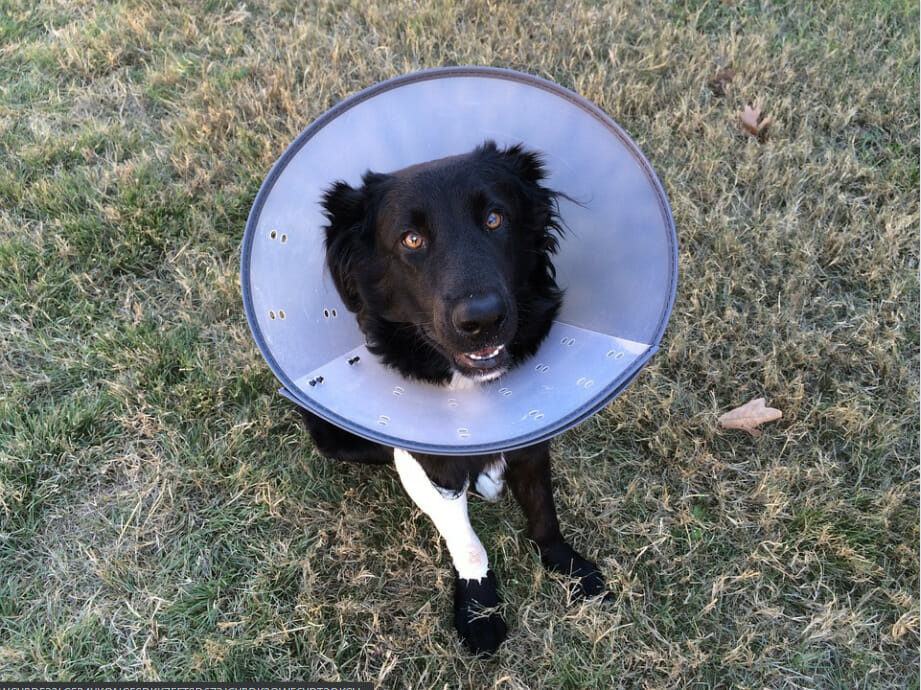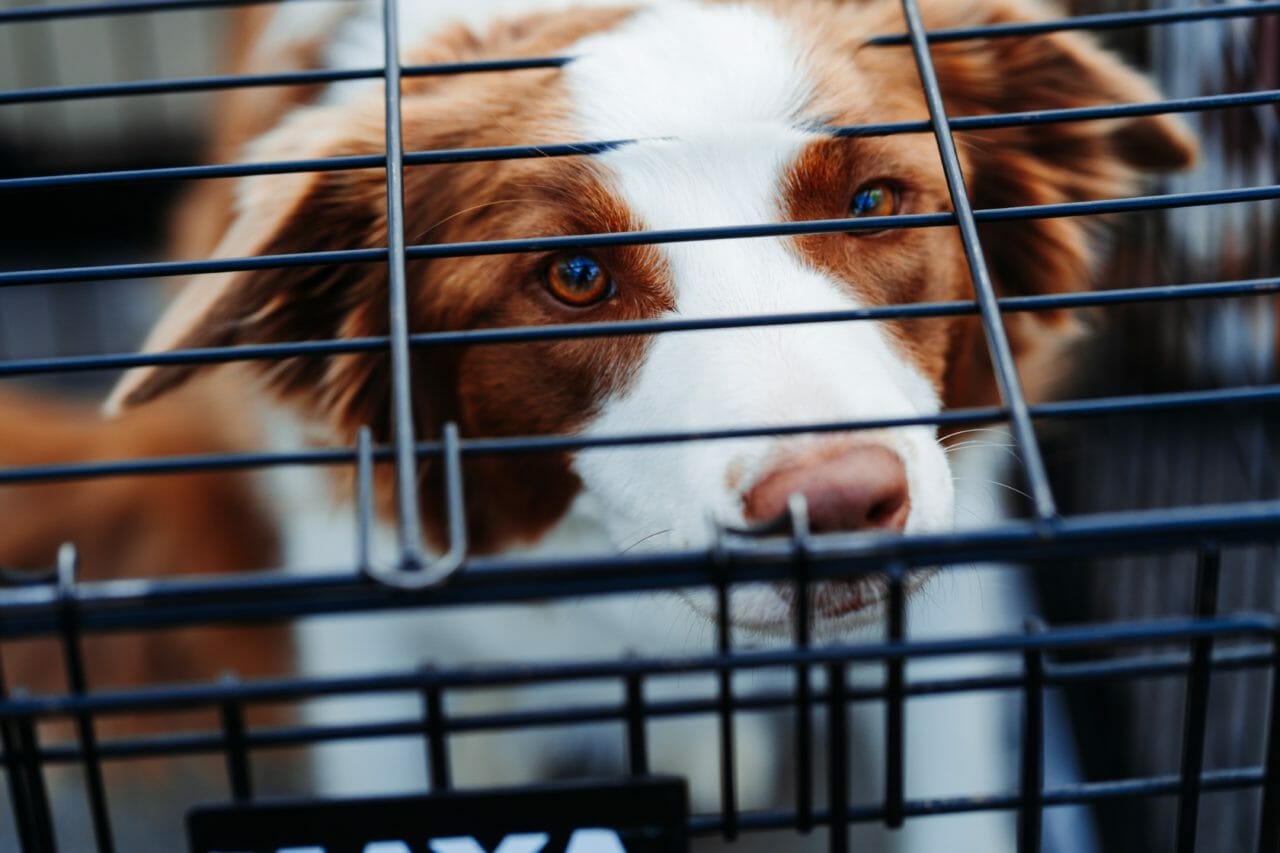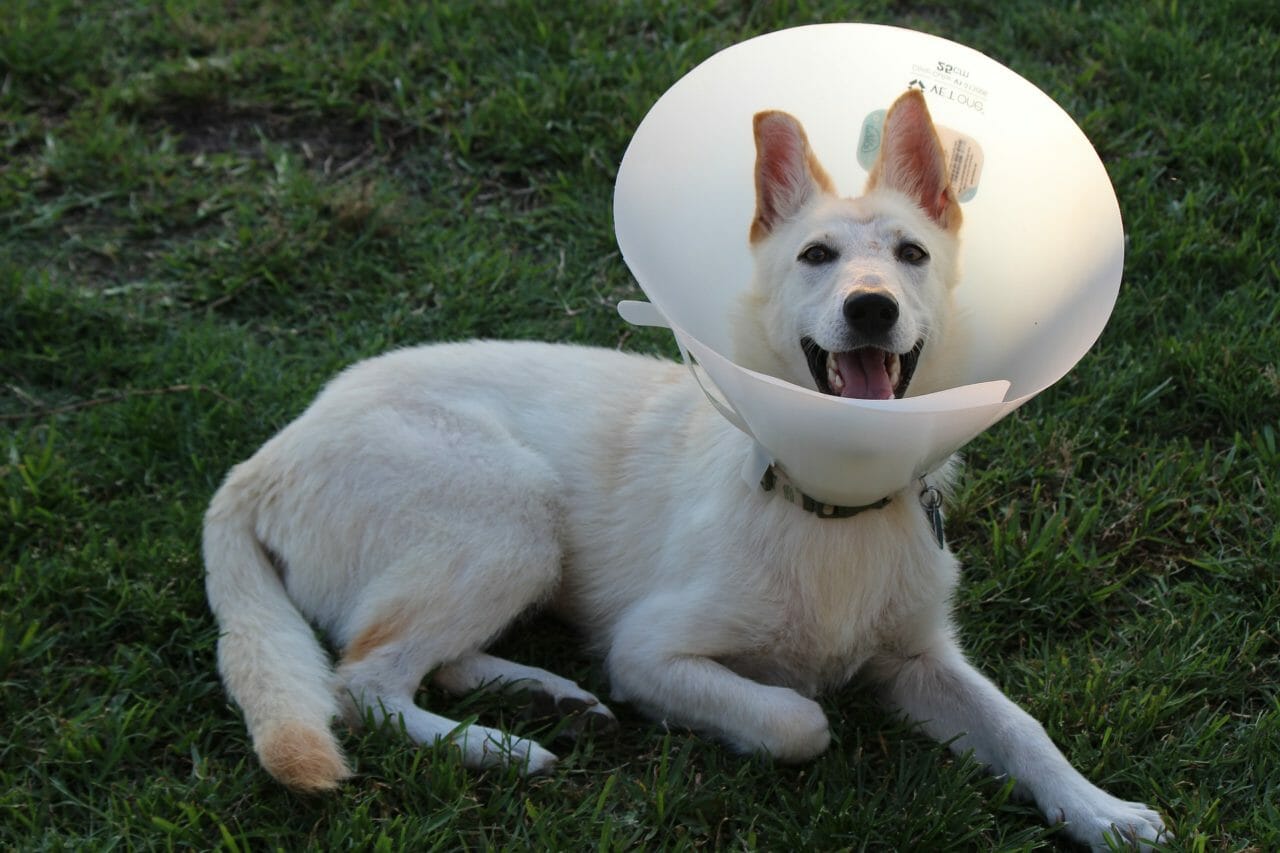Be on the lookout for complications after surgery, one of which could be a hernia.
If you’re like most dog owners, you are probably considering spaying your dog. This is an important decision, and there are a few things that you should know about the procedure before you make up your mind.
One of the potential risks associated with spaying dogs is developing a hernia. In today’s blog, you’ll learn about dog hernias, how they occur, and what you can do to prevent them. We will also cover the symptoms of a dog hernia and available treatment options.
What Is Spaying?
Spaying is the surgical removal of a female dog’s ovaries and uterus. The procedure is also called an “ovariohysterectomy.”
There are 2 types of different spay surgery:
Traditional
This involves making a large incision in the dog’s abdomen and removing the ovaries and uterus through this single opening.
Laparoscopic
This minimally invasive surgery removes only the ovaries through 2 small incisions in the dog’s abdomen.
The type of spay surgery your dog will have will be determined by her age, health, and the veterinarian performing the surgery.
Spaying is a common surgery for female dogs and has many benefits. A few of them include:
- Reducing the risk of your dog developing certain types of cancer
- Preventing unwanted puppies
- Decreased aggression
- Eliminating your dog’s heat cycles
As with any surgery, there are some risks associated with spaying. The most common complications are minor and include things like bleeding and the possibility of infection. These can both be taken care of with medication and rest.
And yes, there is a greater potential for your dog to develop a hernia after spay surgery.
What Is a Hernia?
A dog hernia is a bulge or protrusion of abdominal contents through a weakness in the abdominal wall. Hernias can occur naturally or can be the result of trauma to the area, such as spay surgery.
Several different types of hernias can affect dogs, but 4 are the most common:
Hiatal hernias
This type of hernia occurs when the stomach protrudes through the diaphragm, the muscle that separates the chest from the abdomen.
Inguinal hernias
This is the most common type of dog hernia and occurs when part of the intestines protrudes through a weakness in the abdominal wall near the groin.
Umbilical hernias
This type of hernia occurs when part of the intestines protrudes through the navel and is usually found in puppies.
Perineal hernias
This type of hernia occurs when part of the rectum protrudes through the pelvic floor muscles.
These types of dog hernias can be either congenital, meaning that your dog is born with them or acquired later in life, or as a result of improper healing from various types of surgery, such as the spaying procedure. Hernias, however, are more common in intact (not spayed) female dogs and in certain breeds, such as Yorkies and Poodles.
Can My Dog Develop a Hernia After a Spay?
Yes, your dog can develop a hernia after spay surgery.
Hernias are most likely to occur at the incision site. Incisional hernias are relatively rare but are usually caused by a disruption in the healing process.
Dogs that develop hernias after spay surgery are those that haven’t fully healed after surgery. These dogs start walking or running around too soon. This overexertion can cause an inguinal hernia by further damaging the abdominal wall near the groin that’s already been weakened by the spay surgery.
If your dog does develop a hernia after spay surgery, it is important to take her to see a veterinarian as soon as possible. Hernias can be serious and may require surgery to repair.
What Are the Symptoms of a Hernia?
The most common symptom of a dog hernia is a bulge or protrusion in the abdomen or near the surgical scar. Inguinal hernias are more difficult to see because they are near the groin area.
Other symptoms of dog hernias include:
- Vomiting
- Swelling
- Lethargy
- Not going to the bathroom
- Loss of appetite
- Slow movement or not wanting to move at all
If you do notice vomiting, this could be a sign that the hernia is affecting an internal organ and could be a life-threatening issue. Get your pup to the vet as soon as possible.
How Can I Treat a Post Spay Hernia?
Dog hernias typically require surgery to repair. The type of surgery will depend on the severity of the hernia.
- For minor hernias, your veterinarian may be able to push the protruding tissue back into place and then sew up the hole in the abdominal wall. This is a simple closure and can be done without putting your dog under general anesthesia.
- For more severe hernias, your dog needs surgery to repair the hole in the abdominal wall. This type of surgery is called a surgical correction and will require general anesthesia.
After surgery, your dog will need to rest and recover. This usually takes about two weeks.
During this recovery time, it is important to keep your dog from jumping or running around too much so that the incision can heal properly.
How Can I Ensure My Dog Fully Recovers From a Hernia?
After your dog has had the hernia repaired, it is important that you follow all of the instructions given to you by the veterinarian. This will help ensure that your dog fully recovers from the surgery and does not develop further complications.
The most important thing you can do is ensure that your dog rests and doesn’t put too much strain on the incision. You should also keep an eye on the incision and ensure it is healing properly. Contact your veterinarian immediately if you notice any redness, swelling, or discharge.
Feeding your dog a nutritious diet and ensuring she gets lots of water can help speed up the recovery time.
Final Thoughts
Going through spay surgery is tough enough on dogs and dog owners, but adding in the potential for hernias can be even more overwhelming.
It is important to remember that it’s relatively rare for a dog to develop a hernia after spay surgery. While there are some dog breeds that are more prone to developing hernias, most dogs will not develop one.
If your dog develops a hernia after spay surgery, we hope you’ll use these tips from RehabPet.com to help your pup. And always be sure to contact your vet to inform them of any issues.



